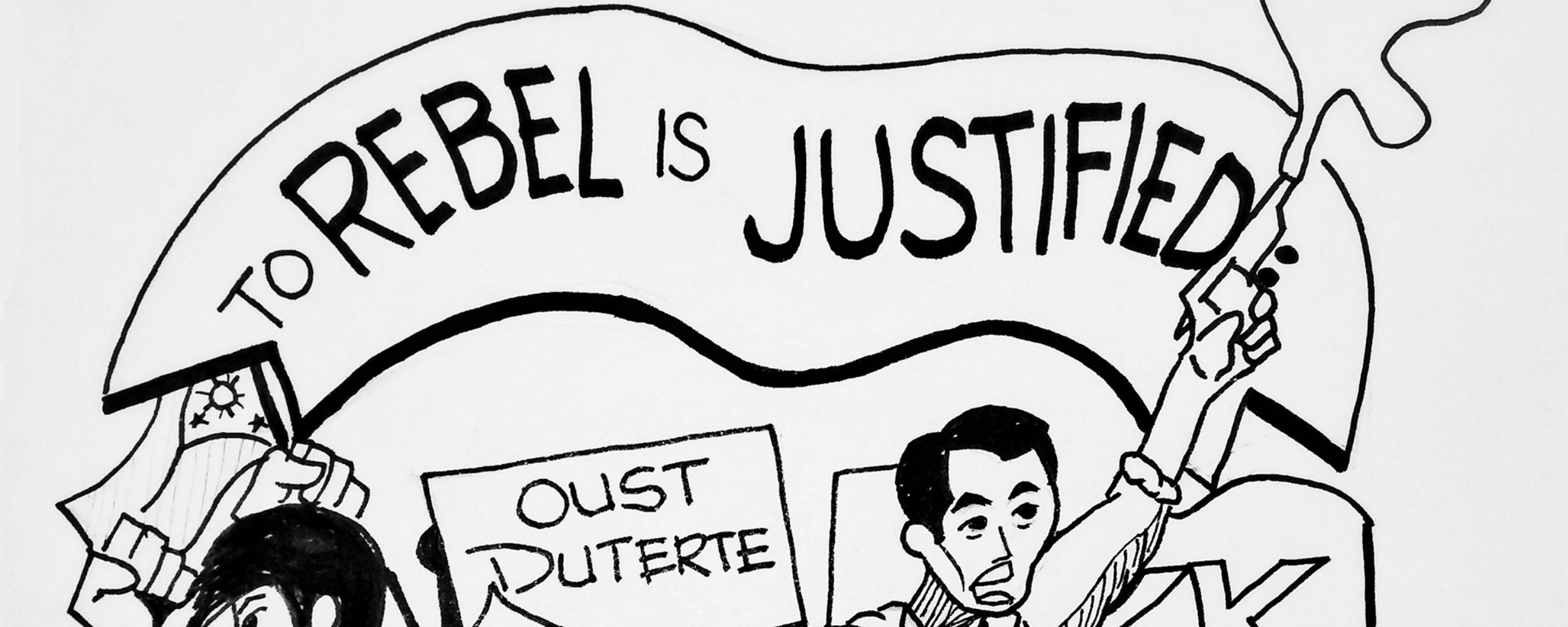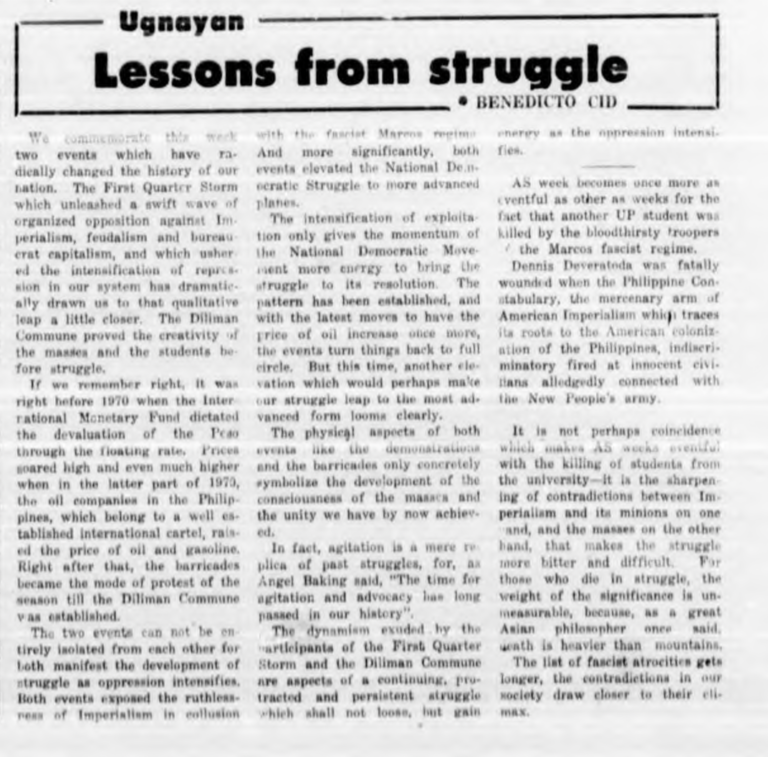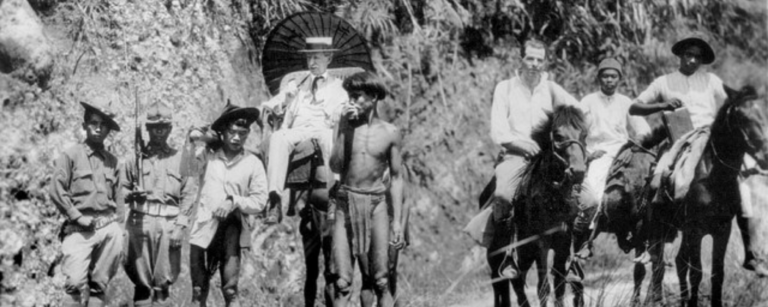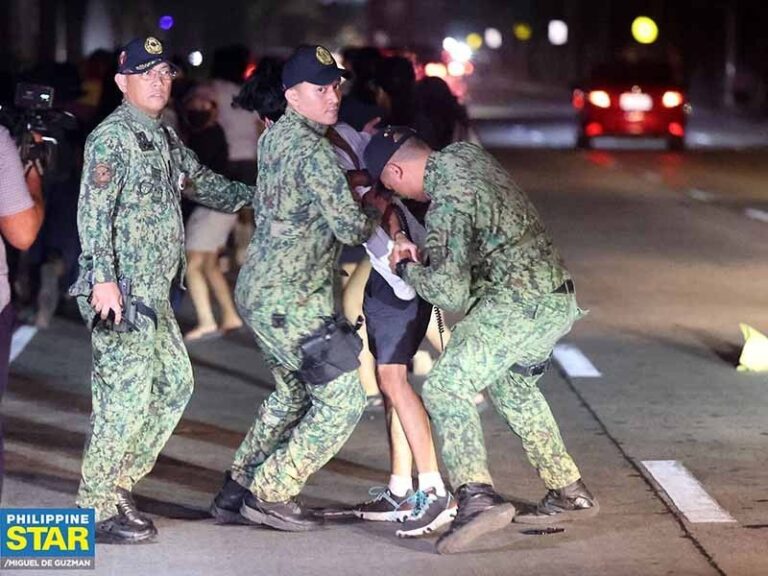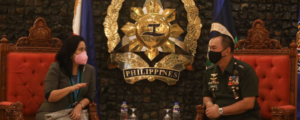
Andres Bonifacio would be named a terrorist today.
One glance at how this administration treats those who have followed in his footsteps makes a compelling case.
This is why it is all the more sickening to witness fascists and enablers sully Bonifacio’s name as they sing him praises for his valor and patriotism while benefiting from the very system he strived to dismantle.
Last year, Duterte had the gall to use Bonifacio’s legacy in peddling his misguided portrait of the Philippines. “We are challenged to continue his revolution as we liberate ourselves from corruption, criminality, terrorism, illegal drugs, and other social ills that continue to plague our society,” he said in his statement.
But just as he would vilify the Father of Philippine Revolution were he alive today, Duterte himself would not exactly win Bonifacio’s favor. In fact, he would most certainly be the narrowest target of his indignation.
After all, the conditions during his time are not markedly different from ours. The same evils that crippled the country under the Spanish colonizers persist up to this date. Despite claims of being ‘granted’ our independence, the Philippines remains at the beck and call of large foreign powers.
Our old colonial masters were merely replaced with new ones, who continue to operate under the guise of aid and benevolence.
The ruling class installed by the feudal system have not budged from their seats of power. Farmers continue to till lands they have yet to own. It is precisely because of landlessness that the country is beset with aggravating poverty. Workers continue to be exploited, as they earn meager wages inadequate for their survival. Those who dare dissent are silenced.
It is from these injustices that revolutionaries like Bonifacio are born. Reforms fall short, as Bonifacio soon came to realize. Hence, he sought to emancipate the Filipino people from more than three centuries of Spanish colonial rule by staging a revolution. Together with the Katipunan, Bonifacio bravely and uncompromisingly fought for national liberation.
His belief in the power of armed struggle as the sole path to genuine independence sets him apart from other national heroes. He trusted the revolutionary spirit of the Filipino people and did not second-guess responding to the colonizers’ violence with violence. He resolutely took up arms in the face of the Spaniards’ tyranny.
It is precisely because of this, however, that his contributions and ideals tend to be watered down. Inside the classrooms, we come to learn of Andres Bonifacio through biographical details and reduced anecdotes devoid of his national democratic aspirations. This is a deliberate choice in a colonial educational system bent on purging from our minds the memory of our predecessors’ revolutionary struggle.
To remember then is to resist.
Bonifacio received little formal education, but he knew far more than those who did. He may have never made it into the hallowed halls of the university, but he understood and identified with the plights of the Filipino people. He grasped significant details of their experience that words on textbooks would never be able to fully articulate. Bonifacio learned from the masses. As we commemorate Bonifacio’s 157th birth anniversary today, let us also resist by remembering him for this. It is high time to reevaluate where we locate learning in this political climate. For what use are sophisticated theories we preach from our ivory towers to the starving and devastated? What place is there for grit when the people have unfairly and disproportionately endured so much? If our education does not side with the masses in times of great need, then who is it for?
Emulating Bonifacio goes beyond blanket statements of patriotism that are easily spewed by self-serving politicians who have long betrayed our country. Instead, we are called to continue the 1896 revolution. The struggle for genuine democracy lives on, and it will not be fought in the language of the academe.
The only way to honor Bonifacio’s memory is to oppose this regime that has committed insurmountable crimes against the Filipino people.
Today, we shall join forces with those who have long taken up the call to resume the Katipunan’s unfinished struggle. It will be a good day to oust a fascist.

